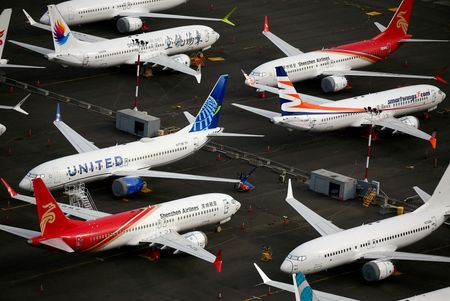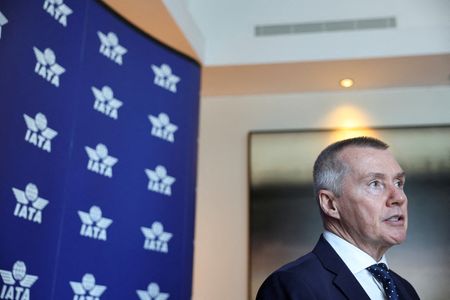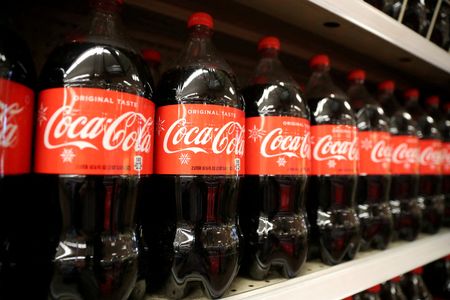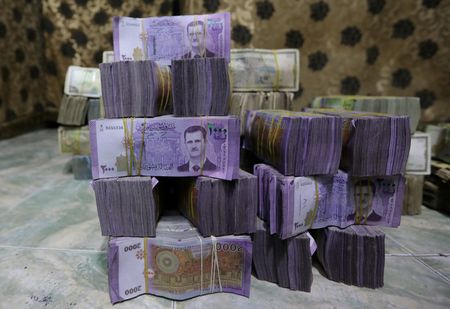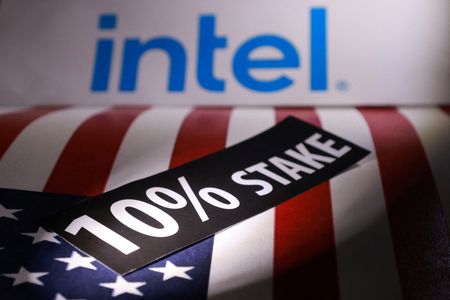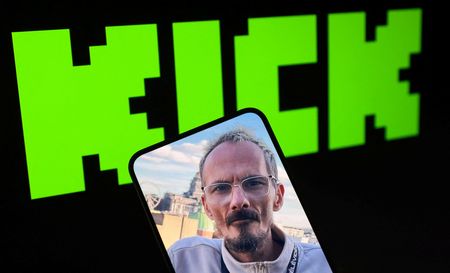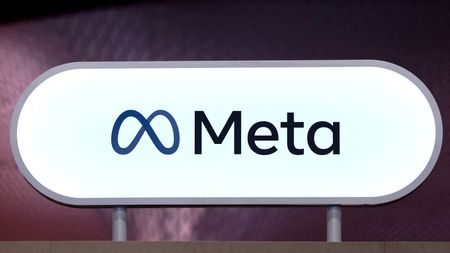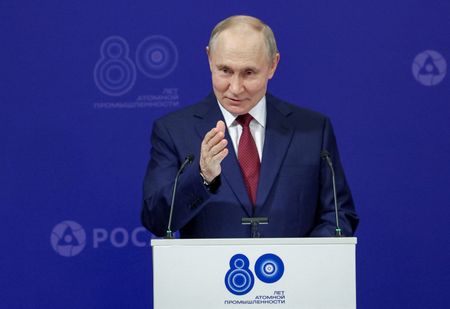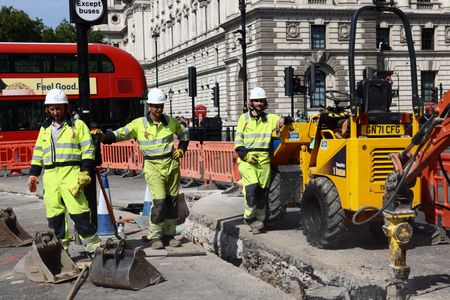By Tim Hepher and Joanna Plucinska
PARIS/LONDON (Reuters) – Global airlines have issued their bluntest warning yet that efforts to reach net-zero emissions by 2050 are sliding off course, as the head of their main trade body accused oil firms and the rest of the aviation sector of dragging their feet.
Airlines agreed in 2021 to target net-zero emissions in 2050 based mainly on a gradual switch to Sustainable Aviation Fuel (SAF). But cracks have appeared as airlines clash with airports, manufacturers, air traffic control agencies and energy companies.
Willie Walsh, director general of the International Air Transport Association, told Reuters in an interview that airline bosses are increasingly alarmed at the unbalanced burden of the target.
“We don’t see others playing their part. In fact, they’re behind where they should be and moving in the wrong direction,” he said. “They’re all committed, so long as we pay the bill. And that’s just unacceptable.”
The outspoken former British Airways boss doubled down on recent comments, reported by Aviation Week, in which he predicted increasing pressure to reassess the target.
That marks a shift in tone from an IATA gathering just 10 months ago when Walsh described the target as “existential not optional” and hailed a “fundamental consensus” in aviation.
“We’re going to have to reevaluate the commitment to net zero in 2050, because we’re just not getting the support that the airlines require,” he said.
“What I’m seeing now is more and more concern being expressed by airline CEOs that more is expected of the industry, which is going to cost even more than the eye-watering estimates that we’ve had.”
The next test could be IATA’s annual meeting in New Delhi in June.
“It’s not our intention to formally revisit (the target),” he said. “But it would not surprise me if we get calls from member airlines to look again at that commitment, because (it) was made on the basis that everybody would play their part.”
‘PLAYING THEIR PART’
Walsh also dismissed an interim goal by governments to reduce emissions 5% by 2030 through the use of low-carbon fuels. IATA opposes interim targets, given there is enough SAF available for only 1% of today’s fuel needs.
Walsh criticised fuel companies as the “cause of the problem”, saying they had ignored their own SAF supply promises.
“They’ve got to start playing their part,” he said, adding that airlines would spend an additional $3.8 billion on fuel this year due to government mandates and broader carbon emissions pledges.
FuelsEurope, which represents conventional and renewable energy firms, did not respond to a request for comment.
Airlines would also take stock of delays in new aircraft deliveries, Walsh said.
“It would be foolish for us not to flag these issues and foolish of us to believe that we are on track,” he said.
Groups representing the aerospace industry in Brussels and Washington said manufacturers remain committed to supplying efficient new jets but face persistent supply chain issues.
Walsh also blamed airports and a stalled two-decade effort to reform airspace in Europe.
“These guys can’t try and benefit from the halo effect of what the airlines are doing, if they’re not prepared to commit to supporting the industry,” he said.
ACI Europe, which represents airports, said they are doing “more than their fair share” in decarbonising aviation and accused IATA of shifting responsibility. CANSO, an air traffic control umbrella group, said it was strongly committed to net zero and making airspace more efficient to help burn less fuel.
Walsh said airlines were not interested in a “blame game”, but that, if net-zero goals were to be met, the entire sector needed to understand the state of play.
“It’s reality. We’re highlighting the nature (and) scale of the challenge,” he said.
(Reporting by Tim Hepher and Joanna Plucinska; Editing by Joe Bavier)

